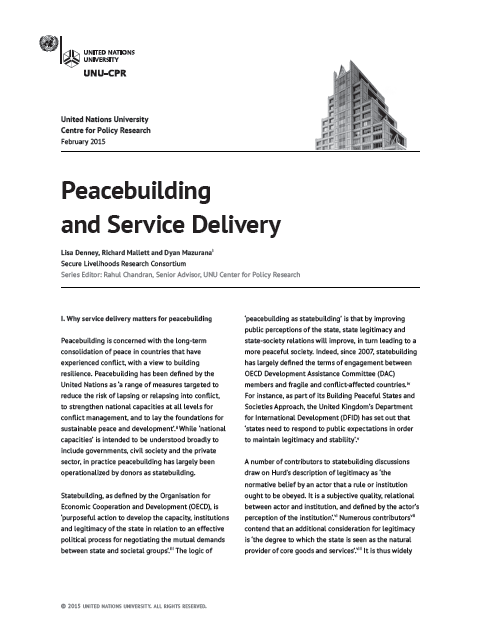The briefing paper explores the relationship between service delivery, peacebuilding, and state legitimacy in the Democratic Republic of the Congo, Nepal, Pakistan, Sri Lanka, and Uganda. It finds that the level of access people have to basic services does not tend to be related to how legitimate they perceive their government to be. However, the more problems people encounter with services, the worse they think of their governments.
Given these findings, the paper then explores why service delivery matters for peace-building and proposes four key ideas for the future of peace-building and service delivery. They are:
- Start with the idea that peace-building and legitimacy are multidimensional
- Focus broadly on the how of service delivery
- Bring the politics back in and do no harm
- Manage expectations
This briefing paper is part of a series of inputs to the United Nations’ Advisory Group of Experts working on the Review of the Peace-building Architecture (PBA) done by the Secure Livelihoods Research Consortium (SLRC). The SLRC is a six-year, eight-country research study, led by the Overseas Development Institute (ODI) in London. SLRC investigates livelihoods, access to basic services, and social protection in fragile and conflict-affected situations. The research is funded by the UK Department for International Development (DfID), Irish Aid, and the European Community (EC). The Feinstein International Center leads SLRC research in South Sudan and Uganda in addition to its participation in the Sierra Leone research.







